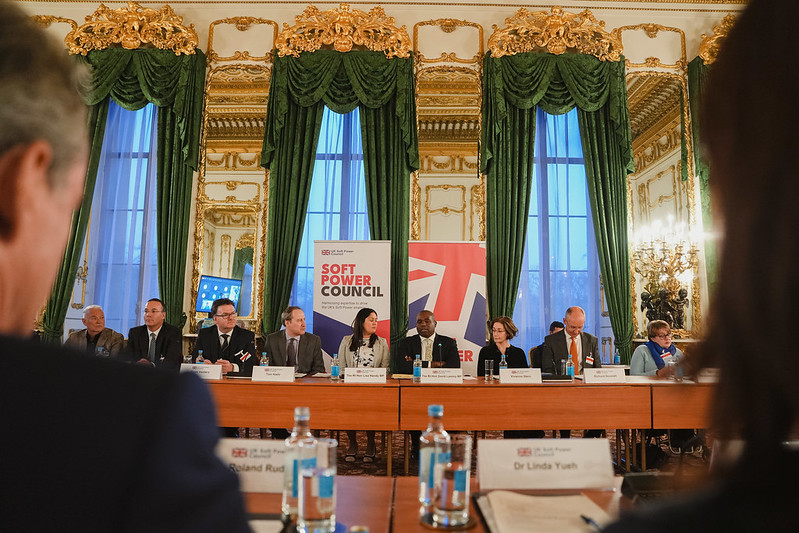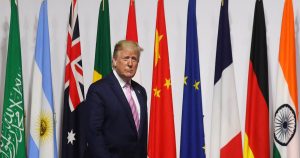The UK government has recruited Tristram Hunt, the director of the Victoria and Albert Museum, and Peter Bazalgette, the chair and pro-chancellor of the Royal College of Art, to boost the country’s global soft power.
They will sit on a new 26-member advisory council–coined the Soft Power Council–which the government said brings together “soft power and foreign policy experts to champion a new, hard-nosed approach to soft power.”
“The newly established council will identify opportunities across the sectors and industries represented where closer working with government can advance our broader growth and security objectives,” the Labour government said in a statement. “It will drive greater impact through government campaigns and a systematic approach to the global foreign policy, cultural and sporting calendars.”
Ewan Venters, the ex-chief executive of Artfarm, the hospitality group set up by mega-gallery Hauser & Wirth, and Roland Rudd, who chairs Tate’s board of trustees, are also on the council. It will meet four times a year to develop a “forward plan for government campaigns that promote the UK image and offer to the world, drawing on the breadth of UK strengths, including diversity.”
The UK’s foreign secretary, David Lammy, said in a statement that the council was created “to channel British expertise as we look to re-imagine Britain’s role on the world stage, reinvigorate alliances and forge new partnerships.”
“Soft power is fundamental to the UK’s impact and reputation around the world. I am often struck by the enormous love and respect which our music, sport, educations, and institutions generate on every continent,” he said. “But we have not taken a sufficiently strategic approach to these huge assets as a country. Harnessing soft power effectively can help to build relationships, deepen trust, enhance our security and drive economic growth.”
According to the Global Soft Power Index by Brand Finance, the UK ranks in the top three across all major soft power indices.
The Soft Power Council’s launch coincides with the UK culture secretary, Lisa Nandy, announcing a £60 million injection for the country’s creative industries last Friday. During a speech in Gateshead in the north of England, she promised to “turbocharge” the nation’s film, TV, music, theater, arts, and video game sectors. Nandy also vowed to “bulldoze” barriers that hold back potential in a bid to drive economic growth.
“Every government has understood the cultural value of the creative industries. They’ve understood the social value. Very little attention has been paid to the economic potential,” she said. “It is one thing to talk, it is another to act. The creative industries have not been shy in coming forward to tell us what is holding them back.”
Nandy said creative industry bosses have told her about skills shortages stemming from a lack of investment and the downgrading of arts subjects on the school curriculum. “It is a tragedy when you think of how many children would love to get jobs in film or fashion or video games, but simply can’t. [It would be like] dreaming of going to the moon [and that can’t be right],” Nandy added.
She said more than half of the £60 million package will support “grassroots creative ventures such as start-up video game studios, music venues and other creative businesses.”
This comes after ministers have slashed the UK’s art and culture budget in recent years. Since 2017 alone, local government funding in England has fallen by 48 percent. At the end of last year, Nandy acknowledged that she was “very aware that there is a lot of fragility in our sectors—in music, in arts, in museums.”
Related Articles






